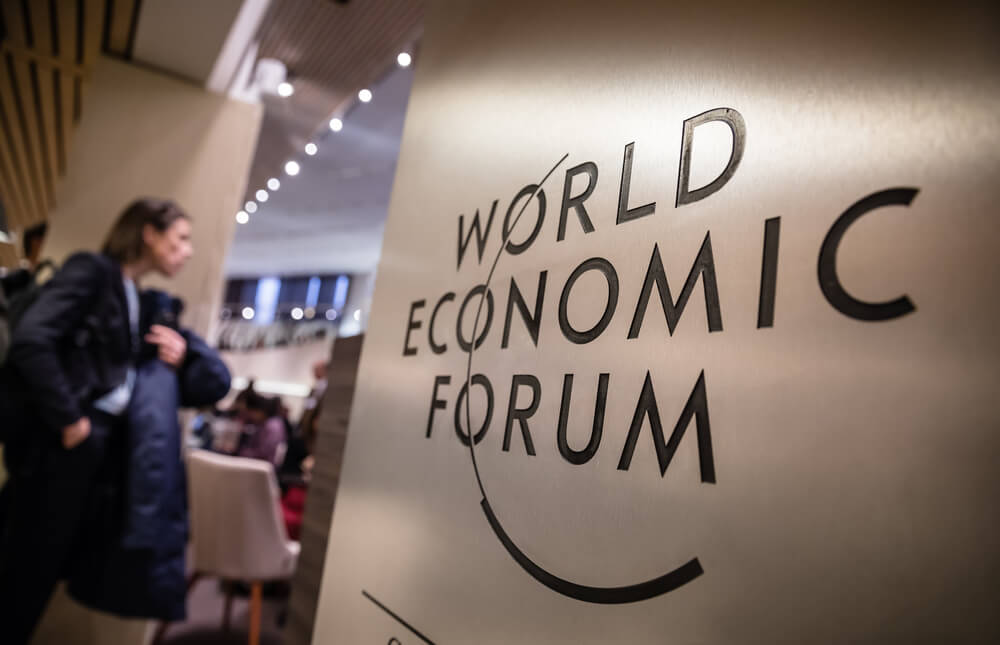Conspiracy theorists and populists who have long attacked the World Economic Forum and the globalised elite who meet annually in Davos will be rubbing their hands with glee over a swirl of allegations of misconduct centred on Klaus Schwab.
The founder of the WEF forum has firmly rejected the allegations, which concern governance and structure as well as the integrity of the Global Competitiveness Report, a flagship ranking of countries by productivity.
While it may be too early to announce the definitive demise of Davos Man, the WEF’s troubles mark the wounding of a major driver of globalisation and multilateralism, already under severe threat from President Donald Trump and his supporters around the world.
The guest list next January at the Swiss resort of Davos, which has become used to hosting presidents and CEOs, may not be so glittering. In the meantime, it may become harder to cite its research as independent support of the free-market, green, and globalised agenda.
WEF scandal
A report in the Swiss newspaper SonntagsZeitung last weekend said that investigators had found support for the allegations against Schwab that first appeared in a whistleblower letter that emerged in April.
The letter was allegedly sent by current and former staff and accused Schwab of financial misconduct, including misuse of WEF funds and inappropriate treatment of employees. His wife, Hilde, was accused of using WEF resources for personal travel. He was also accused of sending suggestive emails and having “embarrassing interactions” with younger WEF staff.
Schwab then resigned as chair and member of the board of trustees following an emergency board meeting. After stepping down as executive chairman last year, he had planned to stay in a non-executive role until 2027.
“I am not available for further investigations” - Klaus Schwab
SonntagsZeitung said investigators found indications that Schwab had intervened in the Global Competitiveness Report to serve the political sensitivities of some governments and that he had submitted personal expenses for around $1.1 million in spending that was insufficiently linked to WEF activities.
Schwab said he co-operated with the inquiry by the law firm Homburger on the basis that both sides would restrain from media and public comment. “I feel deceived,” he said in a statement on Sunday. “I am not available for further investigations.”
Davos’s reputation under attack
Right-wing newspapers such as the UK’s pro-Brexit Daily Telegraph jumped on the revelations. It said that the 2017-2018 Global Competitiveness Report should have shown the UK’s ranking jumping to fourth from seventh place but that Schwab wrote to staff saying the UK “must not see any improvement,” as otherwise it would be “exploited by the Brexit camp”.
The final report published in 2017 showed the UK had dropped one place to eighth.
The reputation of Davos often comes under attack, and even more so since 2020, when Schwab and King Charles said the COVID-19 pandemic was an opportunity for a “great reset” of the world economy.
There were claims that the Davos elite were manipulating global events for their own benefit
Attacks that began on the extreme fringes of the internet became more mainstream with claims that the Davos elite were manipulating global events for their own benefit.
A book by the conspiracy theorist Alex Jones, “The Great Reset: And The War For the World”, was described as an analysis of “the global elite’s international conspiracy to enslave humanity and all life on the planet.”
Jones was later found to have made false statements about the veracity of the Sandy Hook school massacre in 2022 by a Connecticut court, and he was ordered to pay millions in damages to relatives of the victims.
Meanwhile, a 2022 rally held in an upstate New York church even featured a photo of Schwab next to other “villains” accused of threatening US values.
WEF unlikely to achieve the heady heights
WEF’s work continues, and it recently co-ordinated an initiative to boost economic competitiveness endorsed by the European Union. The project, Leaders for European Growth and Competitiveness, is aimed at making concrete reforms at the EU level.
 The WEF is unlikely to achieve the heady heights achieved in the decades after Schwab founded the non-profit in 1971 with a commitment to “improving the state of the world”
The WEF is unlikely to achieve the heady heights achieved in the decades after Schwab founded the non-profit in 1971 with a commitment to “improving the state of the world”
But the WEF is unlikely to achieve the heady heights achieved in the decades after Schwab, a Swiss-German economist, founded the non-profit in 1971 with a commitment to “improving the state of the world”.
In 1988, an agreement known as the Davos Declaration was signed at the meeting and credited with helping Turkey and Greece to step back from the brink of armed conflict.
In 1992, Nelson Mandela and then South African president FW de Klerk made their first joint appearance together on the international stage at Davos, and they won the Nobel Peace Prize the following year.
In 2000, the Global Alliance for Vaccines and Immunisation (Gavi) was launched at Davos and since its creation has contributed to the vaccination of 760 million children worldwide.
Exemplifying how the world has changed, only a month ago, Robert F. Kennedy, the US health secretary, announced Washington would cut off more than a billion dollars in funding to Gavi.
The cuts will threaten the lives of hundreds of thousands of children a year, say public health experts. Perhaps if the warning of these potential deaths were better known, there might be a reversal of the demonisation of global co-operation.